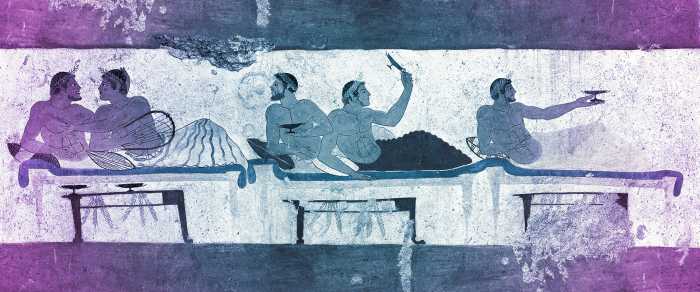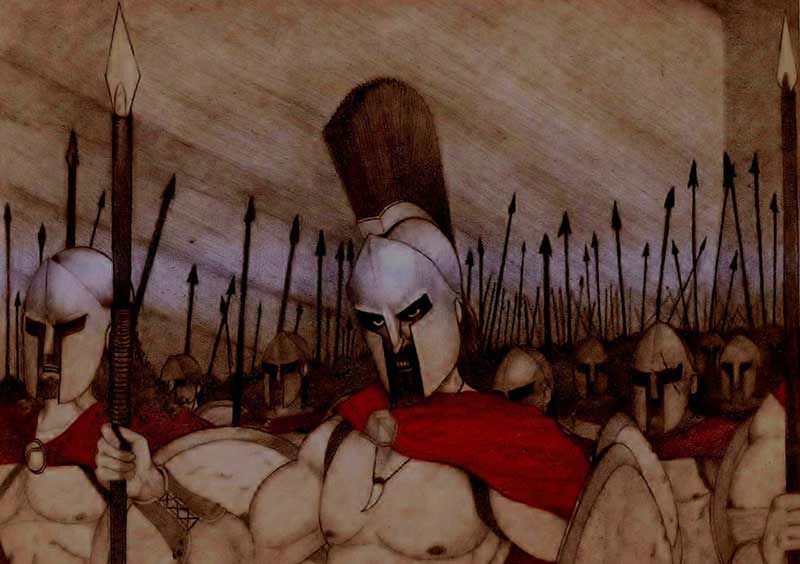
Gay History: Ancient Greece
In ancient Greece, they didn’t worry too much about identifying as straight or gay. People were simply sexual creatures and had sex with those who interested them – it might be a man or a woman. There was also a system of sexual and mental mentoring known as pederasty, wise members of Greek society would take on a young man to scholar and instruct. Pederasty in ancient Greece was a socially acknowledged erotic relationship between an adult male (the erastes) and a younger male (the eromenos) usually in his teens. It was characteristic of the Archaic and Classical periods.
Originally, the Greek daddy and twink would travel to somewhere secluded and begin a process of intellectual and emotional development. The boy was expected to resist the man’s sexual advances initially to develop an emotional bond. He was playing hard to get to make sure the relationship was built on love. The young boy would perform the role of the passive bottom, and the man was the active top.
When the boy could grow a full beard, the internship finished as he was now considered a man. He would take a wife and stay in touch with his mentor through friendship. As the young men became bearded hairy adults, they were also expected to abandon the practice of bottoming. ‘Taking it’ was viewed as feminine and unbecoming of a masculine grown man. They were supposed to evolve into masculine tops. Having gay sex as an adult was acceptable as long as you were active.
Of course, mature gay couples must have existed, but the bottoming element was taboo. This social custom is still evident in certain gay communities around the world, where tops are assumed to be manlier than the bottoms they sleep with. This internalized homophobia was alive even in the time of Plato. Today bottoms can be as masculine or feminine as they like, a sexual act should not define your personality.

The Sacred Band of Thebes
Homosexuality was so interwoven into Greek society it even featured in their religion. Heracles, known to the Romans as Hercules, son of Zeus, had a loyal servant and lover, Iolaus. The love between Hercules and his servant Iolaus was so strong that the two often appeared together in Hercules’ temples.
Possibly the world’s only gay army, The Sacred Band of Thebes, swore members into their legion at the tomb of Iolaus. This band of soldiers challenged the perception of gay men and their masculine versus feminine roles. 150 gay couples were selected in the city of Thebes. These 300 men were trained in combat, dance and horse riding. This group of romantic warriors defeated the Spartans, a horde three times their size and reigned as an unbeatable army for 40 years. It was thought a man would fight all the harder for the man he loves, especially if they go to battle side by side. The bizarre theory worked. This team of killer gays was one of the fiercest and most successful troops to come out of Thebes.
In 338 BC they came up against Philip II of Macedon. Philip’s son, Alexander, was keen to impress his father and managed to break the gay army’s ranks, killing all of them. On inspecting the bodies, Philip II realized who the militia was. The dead army of lovers were piled up on top of each other. All had bravely fought to the death – none had fled in cowardice. Philip remarked, “Perish any man who suspects that these men either did or suffered anything unseemly.”
Out of respect for their bravery, their fighting spirit and perhaps their love, the dead soldiers were buried together in 7 rows. Centuries later, excavations revealed 254 skeletons had been lain to rest there. Where the other 46 gay warriors ended up is unknown, perhaps taken prisoner by Alexander or scattered to the four winds.
We’ll explore many more examples of gay role models in ancient Greek society, from philosophers and gods to soldiers and teachers, over the course of this historical series. We may also look at Tchaikovsky, Oscar Wilde, Walt Whitman, Harvey Milk, and James Dean. Help us to decide who to feature first, send in your request to social@planetromeo.com.
